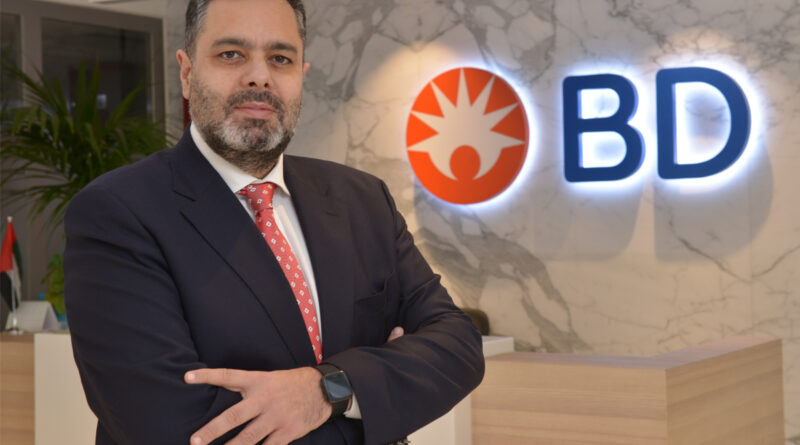Shaping healthcare’s future: BD’s dedication to sustainability and innovation
The future of healthcare in the area will be shaped by sustainability and innovation, according to Maher Elhassan, VP & GM of BD MENAT
The healthcare industry in the Middle East and North Africa (MENA) is going through a significant upheaval as it tries to speed up innovation and incorporate new technologies with shifting patient expectations.
The region’s US$182.9 billion healthcare industry is anticipated to increase to US$261.1 billion by 2023, with a 13.6% compound annual growth rate (CAGR) at constant exchange rates, according to Fitch Solutions.
Reshaping healthcare
The future of the healthcare sector is being shaped by a number of factors, according to Maher Elhassan, Vice President & General Manager for Becton Dickinson Middle East, North Africa, and Turkey (MENAT).
According to Elhassan, the first focuses on smart linked care, which is affected by technologies like artificial intelligence (AI), informatics, and robots. We are also observing a change in the places where patients are treated; this tendency was hastened by the epidemic. Patient care is increasingly being provided in surgery centres, retail clinics, and homes.
Elhassan thinks that this is opening up a lot of possibilities for innovation, particularly with regard to chronic conditions, which could result in better patient outcomes. In the past, taking tablets or other supplements was the mainstay of chronic disease treatment. The same ailments can now be treated with technologies or medical equipment, and BD works to lead this movement, the author continues.
The market for medical devices in the Middle East was estimated to be worth USD 19.6 billion in 2016 and is anticipated to increase at a CAGR of more than 5.5% through 2025. In-Vitro Diagnostics (IVD), Cardiology, Orthopaedics, Diagnostic imaging, Ophthalmology, General and plastic surgery, Drug delivery, Endoscopy, Dentistry, Wound treatment, Diabetic care, and General hospital care are just a few of the medical specialties that have been examined in the market study.
Sustainability is priority
An environmentally sustainable health system, according to the World Health Organization (WHO), is one that enhances, maintains, or restores health while minimising adverse effects on the environment and taking advantage of opportunities to improve and restore it for the benefit of the health and well-being of both present and future generations.
According to Elhassan, medical technology is essential to the advancement of sustainable healthcare. MedTech can lessen the load on healthcare staff and institutions and raise the standard of care by offering flexible solutions that safeguard patients and carers and advancing research that addresses healthcare’s most pressing problems.
When it comes to environmental sustainability Elhassan emphasizes on its importance in healthcare, stating that the pandemic has made it clear that the healthcare ecosystem needs to be strengthened. He sees BD, a company that produces over 45 billion devices a year, as having a responsibility to support both human health and the health of the planet. To that end, BD has established over 2030 commitments and goals aimed at reducing the environmental impact of its products and addressing patient needs.
We provide syringes that are made with less PVC and DEHP. Due to the fact that the product is created without natural latex and produces 30% less trash than other syringes, it helps to safeguard the environment while also lowering waste expenses. Adds he.
Looking to the future
Elhassan asserts that BD is dedicated to consistently expanding its product pipeline and enhancing healthcare delivery through cutting-edge technologies. The business has also created the BD Signature ProgrammesTM, which are centred on Efficiency, Healthcare Workers, and Patient Safety. These programmes will focus on the industry’s particular unmet requirements and problems, such as safeguarding patients and healthcare workers from dangers, managing staffing shortages, boosting employee happiness, and reducing inefficiencies inside healthcare organisations.
“Our commitment to sustainable healthcare will continue to revolve around four key pillars that form the basis of our strategy: personalised care and support along the patient journey; innovating for the future; caring for the environment; and being an experienced partner that is equipped to prepare for what’s next in sustainable healthcare,” he says. “Our Purpose of advancing the world of health is the basis for everything we do.”




